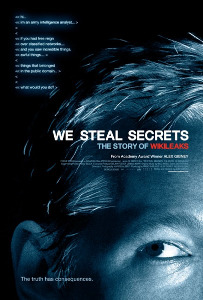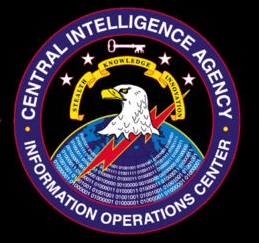
Andy Müller-Maguhn is a member of the German hacker association Chaos Computer Club (CCC). Having been a member since 1986, he was appointed as a spokesman for the club in 1990, and later served on its board until 2012. He runs a company that develops cryptophones.

Internet activism, hacktivism, or hactivism, is the use of computer-based techniques such as hacking as a form of civil disobedience to promote a political agenda or social change. With roots in hacker culture and hacker ethics, its ends are often related to free speech, human rights, or freedom of information movements.

WikiLeaks is a media organisation and publisher of leaked documents. It is a non-profit and is funded by donations and media partnerships. It has published classified documents and other media provided by anonymous sources. It was founded in 2006 by Julian Assange, an Australian editor, publisher, and activist, who is currently challenging extradition to the United States over his work with WikiLeaks. Since September 2018, Kristinn Hrafnsson has served as its editor-in-chief. Its website states that it has released more than ten million documents and associated analyses. WikiLeaks' most recent publication of original documents was in 2019 and its most recent publication was in 2021. From November 2022, numerous documents on the organisation's website became inaccessible. In 2023, Assange said that WikiLeaks is no longer able to publish due to his imprisonment and the effect that US government surveillance and WikiLeaks' funding restrictions were having on potential whistleblowers.

Julian Paul Assange is an Australian editor, publisher and activist who founded WikiLeaks in 2006. He came to wide international attention in 2010 when WikiLeaks published a series of leaks from US Army intelligence analyst Chelsea Manning: footage of a US airstrike in Baghdad, US military logs from the Afghanistan and Iraq wars, and US diplomatic cables. Assange has won multiple awards for publishing and journalism.
The Afghan War documents leak, also called the Afghan War Diary, is a collection of internal U.S. military logs of the War in Afghanistan, which was published by WikiLeaks on 25 July 2010. The logs consist of over 91,000 Afghan War documents, covering the period between January 2004 and December 2009. Most of the documents are classified secret. As of 28 July 2010, only 75,000 of the documents have been released to the public, a move which WikiLeaks says is "part of a harm minimization process demanded by [the] source". Prior to releasing the initial 75,000 documents, WikiLeaks made the logs available to The Guardian, The New York Times and Der Spiegel in its German and English online edition, which published reports in line with an agreement made earlier the same day, 25 July 2010.
The United States diplomatic cables leak, widely known as Cablegate, began on Sunday, 28 November 2010 when WikiLeaks began releasing classified cables that had been sent to the U.S. State Department by 274 of its consulates, embassies, and diplomatic missions around the world. Dated between December 1966 and February 2010, the cables contain diplomatic analysis from world leaders, and the diplomats' assessment of host countries and their officials.

Luke Daniel Harding is a British journalist who is a foreign correspondent for The Guardian. He is known for his coverage of Russia under Vladimir Putin, WikiLeaks and Edward Snowden.
WikiLeaks, a whistleblowing website founded by Julian Assange, has received praise as well as criticism from the public, hacktivists, journalist organisations and government officials. The organisation has revealed human rights abuses and was the target of an alleged "cyber war". Allegations have been made that Wikileaks worked with or was exploited by the Russian government and acted in a partisan manner during the 2016 U.S. presidential election.
WikiLeaks began publishing emails leaked from strategic intelligence company Stratfor on 27 February 2012 under the title Global Intelligence Files. By July 2014, WikiLeaks had published 5,543,061 Stratfor emails. Wikileaks partnered with more than 25 world media organisations, including Rolling Stone, L’Espresso and The Hindu to analyse the documents.

We Steal Secrets: The Story of WikiLeaks is a 2013 American independent documentary film about the organization established by Julian Assange, and people involved in the collection and distribution of secret information and media by whistleblowers. Directed by Alex Gibney, it covers a period of several decades, and includes background material. Gibney received his fifth nomination for Best Documentary Screenplay from the Writers Guild of America Awards for this film.
National Intelligence Secretariat was the principal intelligence agency of the Republic of Ecuador. The agency was created in September 2009. Directors include Rommy Vallejo, Francisco Jijón, Homero Arellano, Luis Yépez, Raúl Patiño and Pablo Romero Quezada.

Global surveillance and journalism is a subject covering journalism or reporting of governmental espionage, which gained worldwide attention after the Global surveillance disclosures of 2013 that resulted from Edward Snowden's leaks. Since 2013, many leaks have emerged from different government departments in the US, which confirm that the National Security Agency (NSA) spied on US citizens and foreign enemies alike. Journalists were attacked for publishing the leaks and were regarded in the same light as the whistleblowers who gave them the information. Subsequently, the US government made arrests, raising concerns about the freedom of the press.
The 2016 Democratic National Committee email leak is a collection of Democratic National Committee (DNC) emails stolen by one or more hackers operating under the pseudonym "Guccifer 2.0" who are alleged to be Russian intelligence agency hackers, according to indictments carried out by the Mueller investigation. These emails were subsequently leaked by DCLeaks in June and July 2016 and by WikiLeaks on July 22, 2016, just before the 2016 Democratic National Convention. This collection included 19,252 emails and 8,034 attachments from the DNC, the governing body of the United States Democratic Party. The leak includes emails from seven key DNC staff members dating from January 2015 to May 2016. On November 6, 2016, WikiLeaks released a second batch of DNC emails, adding 8,263 emails to its collection. The emails and documents showed that the Democratic Party's national committee favored Clinton over her rival Bernie Sanders in the primaries. These releases caused significant harm to the Clinton campaign, and have been cited as a potential contributing factor to her loss in the general election against Donald Trump.

Vault 7 is a series of documents that WikiLeaks began to publish on 7 March 2017, detailing the activities and capabilities of the United States Central Intelligence Agency (CIA) to perform electronic surveillance and cyber warfare. The files, dating from 2013 to 2016, include details on the agency's software capabilities, such as the ability to compromise cars, smart TVs, web browsers including Google Chrome, Microsoft Edge, Mozilla Firefox, and Opera, the operating systems of most smartphones including Apple's iOS and Google's Android, and computer operating systems including Microsoft Windows, macOS, and Linux. A CIA internal audit identified 91 malware tools out of more than 500 tools in use in 2016 being compromised by the release. The tools were developed by the Operations Support Branch of the CIA.

In 2012, while on bail, Julian Assange was granted political asylum in the Ecuadorian Embassy in London, where he sought to avoid extradition to Sweden, and what his supporters said was the possibility of subsequent extradition to the US. On 11 April 2019, Ecuador revoked his asylum, he was arrested for failing to appear in court, and carried out of the Embassy by members of the London Metropolitan Police. Following his arrest, the US revealed a previously sealed 2018 US indictment in which Assange was charged with conspiracy to commit computer intrusion related to his involvement with Chelsea Manning and WikiLeaks.

Emma Best is an American investigative reporter and whistleblower. They gained national attention for their work with WikiLeaks and activist Julian Assange. Best is known for prolific filing of Freedom of Information Act (FOIA) requests on behalf of MuckRock and co-founding the whistleblower site Distributed Denial of Secrets (DDoSecrets).
Kunstler v. Central Intelligence Agency is a lawsuit against the Central Intelligence Agency, former CIA Director Mike Pompeo, Undercover Global S.L., and David Morales Guillen filed by a group of American lawyers and journalists associated with WikiLeaks founder Julian Assange. The lawsuit alleged that the CIA violated their constitutional rights by recording their conversations with Assange and copying their devices after suspicions were raised that Assange was working for the Russian intelligence services.
After Julian Assange was granted asylum and entered the Ecuadorian embassy in London, new CCTV cameras were installed and security personnel working for UC Global and Promsecurity recorded his daily activities and interactions with staff and visitors, including his legal team. In a 2017 email, the surveillance was explained with suspicions that Assange was "working for the Russian intelligence services." New cameras with microphones were installed in December 2017, and the installation of microphones in fire extinguishers and the women's bathroom was ordered. Other microphones were installed in decorations in the embassy. Morales arranged for the United States to have immediate access to the recordings. The embassy staff had removed the toilet in the women's bathroom in June 2012 at Assange's request so he could sleep in the quiet room, which he also used to meet with his lawyers.
Views on Julian Assange have been given by a number of public figures, including journalists, well-known whistleblowers, activists and world leaders. They range from laudatory statements to calls for his execution. Various journalists and free speech advocates have praised Assange for his work and dedication to free speech. Some former colleagues have criticised his work habits, editorial decisions and personality. After the 2016 US Presidential election, there was debate about his motives and his ties to Russia. After Assange's arrest in 2019, journalists and commenters debated whether Assange was a journalist. Assange has won multiple awards for journalism and publishing.










